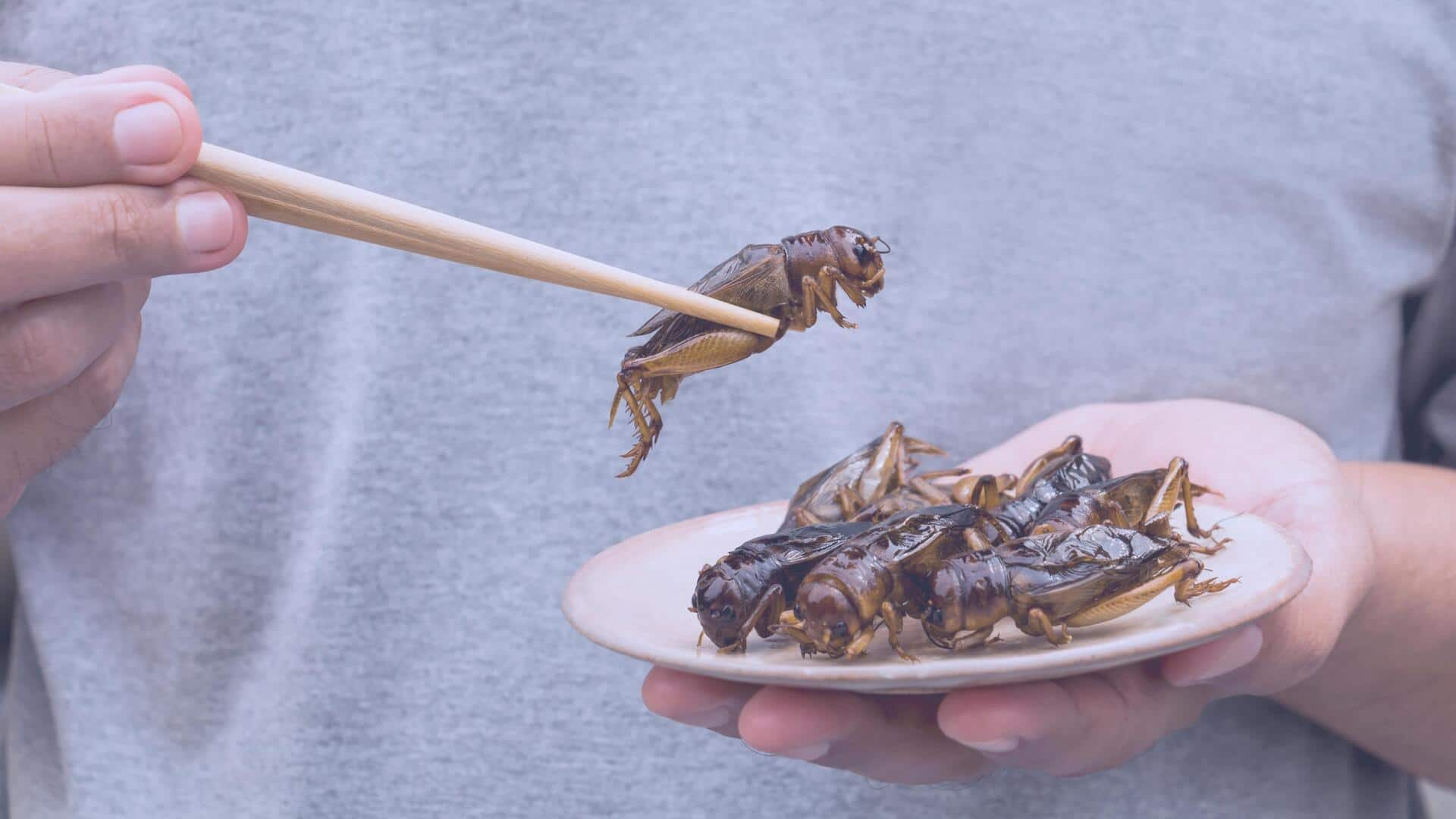
How eating insects could help save the planet
What's the story
We usually think of animals and plants as our main protein sources, but there's another source that's not so famous yet: insects. The thought of eating insects that scuttle across the ground or fly near our ears might strike you as odd, but what if we were to reveal that this very food could play an important role in preserving our planet?
Stats
Insect protein vs meat protein
A 2016 study published in the European Journal of Clinical Nutrition found that insects provide between 9.96 to 35.2 grams of protein per 100 grams, while meat offers only 16.8 to 20.6 grams. Some of the most popular insects people eat are crickets, certain types of ants, and mealworms, mostly due to their high calorie and protein density.
Environmental impact
Environmental benefits of eating bugs
On average, the resources it takes to raise and produce bugs are significantly less than animal-based meat. Rearing bugs require notably fewer resources than conventional livestock. Insects also emit fewer greenhouse gases and necessitate less land. With global challenges like climate change and population growth, transitioning from meat to insects could be a practical step toward a greener future.
Protein demand
Protein availability will shrink as the population grows
By 2050, Earth's population is estimated to reach 10 billion, an increase of 3 billion from 2010. Thus, the demand for protein will surpass what we can produce. Without protein, our body misses out on making essential amino acids needed for our sustenance. To ensure long-term survival, we must simultaneously amplify food production and curtail carbon emissions. Insects offer a promising solution here.
Sustainability
Toward a sustainable protein future
A team of researchers from the University of Illinois-Champaign proposes mealworms as a solution for a sustainable protein future. Replacing traditional sources like goats and chickens with these insects offers more than just nutrition. With the world facing greater challenges in producing food for the ever-rising population, including insects in our diets could be a big step toward a healthier and more sustainable future.
Yuck vs tasty
You say 'yuck,' they say 'yum'
People have been eating insects for a very long time, and this is still happening today. More than two billion people, over a quarter of the global population, eat insects, especially in Africa, Asia, and Latin America. According to the University of Illinois-Champaign, insects present a promising solution in the battle against hunger and malnutrition. They are abundant, nutritious, and environmentally friendly to produce.